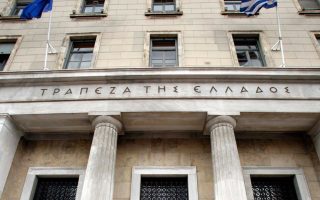September increase too little to offset tourism revenue decline

The country’s tourism revenues recorded year-on-year losses of 703 million euros in the first nine months of 2016, according to data released on Monday by the Bank of Greece.
The revenues of the country’s biggest industry dropped by 5.5 percent in the January-September 2016 period to 12.08 billion euros from 12.78 billion a year earlier. At the same time the big winners this year have been Cyprus and Spain, recording annual growth in revenues of 13.6 percent and 6.3 percent respectively.
The total number of tourism arrivals in the year to end-September posted an increase of 3.5 percent. In September alone, arrivals recorded yearly growth of 13.7 percent while revenues inched up 2.3 percent.
The declining course of tourism revenues confirms the negative forecasts that the country’s tourism associations had warned about. In the context of the Philoxenia exhibition in Thessaloniki, Hellenic Hotel Federation head Yiannis Retsos told the council of hotel association presidents that the shortfall in revenues in relation to the growth in arrivals is significant.
Hoteliers saw that the course of revenues was particularly concerning midseason when rival destinations were filled to capacity, so they resorted to big discounts and extensive special offers to bolster demand. After the coup attempt in Turkey on July 15, the flow of arrivals increased, but the discounts granted to last-minute bookings meant revenues remained in negative territory, affecting the hotel enterprises’ financial results, according to Retsos.
He added that, in terms of tax hikes, hotels were hit harder than any other sector, and especially year-round hotels, which have the greatest tax burden of all.
Retsos further noted that Greece has been quite a pricey destination for visitors this year. He made special reference to the increase in value-added tax rates, not only on accommodation and food service, but also on goods and services that tourists pay for, to higher transport costs and to the more expensive admission tickets for museums and archaeological sites.
As for the handling of the refugee problem, which has been the main source of negative publicity for Greece as a destination, Retsos said that this is a target that appears too difficult to attain.
Speaking at the same event, Tourism Minister Elena Kountoura referred to the initiatives her ministry has taken to boost tourism this season, and said the difference in the Bank of Greece data on revenues and arrivals is “unjustifiable.” She also cited tour operator data to dispute that Greek hoteliers offered discounts, claiming that Greek package holidays were more expensive than those in Spain.





